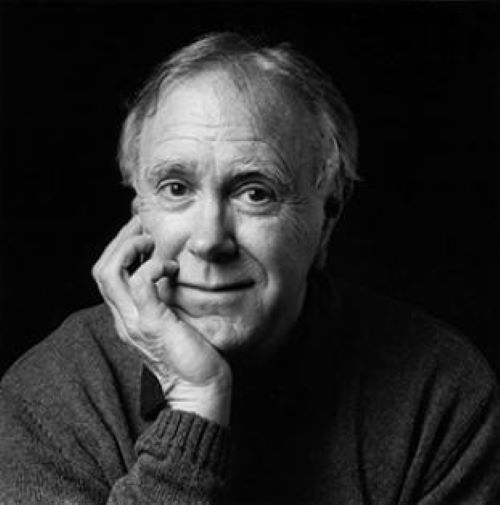The young composer, working that summer at an artist’s colony, had watched her for a week. She was Japanese, a painter, almost sixty, and he thought he was in love with her. He loved her work, and her work was like the way she moved her body, used her hands, looked at him directly when she made amused and considered answers to his questions. One night, walking back from a concert, they came to her door and she turned to him and said, “I think you would like to have me. I would like that too, but I must tell you that I have had a double mastectomy,” and when he didn’t understand, “I’ve lost both my breasts.” The radiance that he had carried around in his belly and chest cavity—like music—withered very quickly, and he made himself look at her when he said, “I’m sorry. I don’t think I could.” He walked back to his own cabin through the pines, and in the morning he found a small blue bowl on the porch outside his door. It looked to be full of rose petals, but he found when he picked it up that the rose petals were on top; the rest of the bowl—she must have swept them from the corners of her studio—was full of dead bees.
Feature Date
- August 28, 2023
Series
- What Sparks Poetry
Selected By
- Dana Levin
Share This Poem
Print This Poem
“A Story About the Body” from HUMAN WISHES: by Robert Hass.
Published by Ecco Press on June 1, 1990.
Copright © 1990 by Robert Hass.
All rights reserved.
Reproduced by Poetry Daily with permission.

Robert Hass was born in San Francisco. His books of poetry include The Apple Trees at Olema (Ecco, 2010), Pulitzer Prize and National Book Award winner Time and Materials (Ecco, 2008), Sun Under Wood (Ecco, 1996), Human Wishes (1989), Praise (1979), and Field Guide (1973), which was selected by Stanley Kunitz for the Yale Younger Poets Series. Hass also co-translated several volumes of poetry with Nobel Laureate Czesław Miłosz and authored or edited several other volumes of translation, including Nobel Laureate Tomas Tranströmer’s Selected Poems (2012) and The Essential Haiku: Versions of Bashō, Buson, and Issa (1994). His essay collection Twentieth Century Pleasures: Prose on Poetry (1984) received the National Book Critics Circle Award. Hass served as Poet Laureate of the United States from 1995 to 1997 and as Chancellor of the Academy of American Poets. He lives in California with his wife, poet Brenda Hillman, and teaches at the University of California, Berkeley.
"To read Robert Hass is to be in the presence of a singular brightness and freshness of mind."
— Elizabeth Hardwick
"Robert Hass is so intelligent that to read his poetry or prose, or to him speak, gives one an almost visceral pleasure."
— Carolyn Kizer, The New York Times Book Review
"Human Wishes takes Hass's poetry to a level of tenderness that few of his contemporaries have reached.... It would not surprise me if he turned out to be one of our major poets, for he has all the requisites: intelligence, depth, musicality, sweep, intimacy, humor, observation, learning, and above all, compassion."
— The Boston Globe
"What's immediately striking in Robert Hass's work is the sheer abundance of pleasures. The poems in Human Wishes are energetic and full of surprises. Robert Hass captures both the brightness of the world and its vanishing."
— The Nation
Poetry Daily Depends on You
With your support, we make reading the best contemporary poetry a treasured daily experience. Consider a contribution today.




